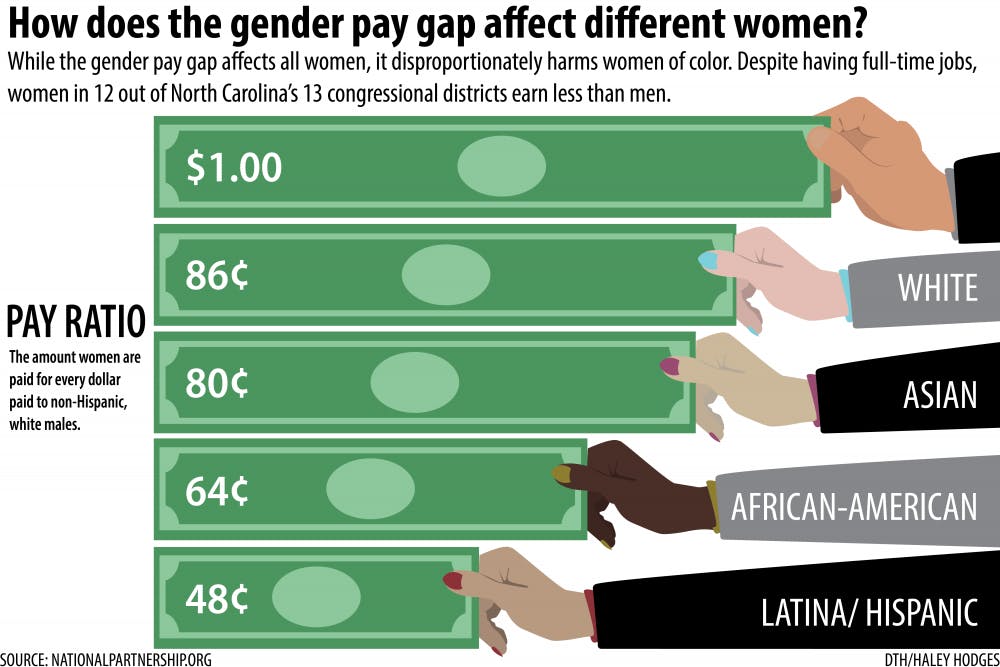The gender pay wage gap could become a thing of the past for North Carolina.
The bill was filed on April 2, National Equal Pay Day, in the General Assembly to prohibit wage discrimination on the basis of gender.
“I do believe the time is right now,” N.C. Sen. Kirk deViere, D-19 and a sponsor of the bill, said. “... there’s no reason in 2019 that an African-American female should be making 61 cents compared to a white male.”
On the same day, Gov. Roy Cooper issued Executive Order No. 93, which addresses the gender pay wage gap among female state employees.
“Women have strengthened our state and our country for generations, but an unfair wage gap continues to hurt women workers — especially women of color,” Cooper said in a press release. “This Equal Pay Day, my administration is taking action to address the gender pay gap among state workers.”
According to the press release, the median annual pay for women with a full-time, year-round job in North Carolina is $36,400. For men with a full-time, year-round job, the median annual pay is $45,000.
Essentially, women are paid approximately 85 cents for every dollar white men are paid.
But looking at the wage gap for women of color is even worse, said Vasu Reddy, senior policy counsel for workplace programs at the National Partnership for Women and Families.
In North Carolina, Black women are paid 64 cents, Latinas are paid 48 cents and Asian women are paid 80 cents for every dollar paid to non-Hispanic, white men.



